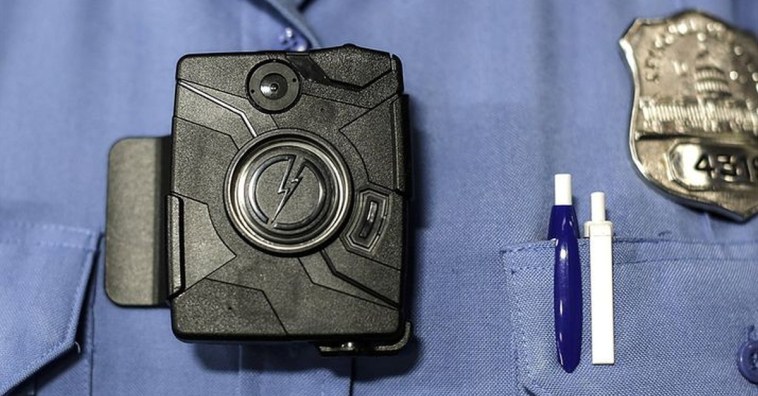For Tinoris Williams and Ernest Cantu, the debate about police using body cameras is too late.
Videos By Rare
Williams, 31, was killed by Palm Beach County Sheriff’s deputy Cantu in April during a confrontation inside a West Palm Beach home. The encounter ended with Cantu firing off one fatal close-range shot that struck Williams in the head. The state attorney’s office chose not to file charges against Cantu.
Angela Williams, a long-time friend of Tinoris Williams’ family and the founder of a local group that supports mothers of murdered children, said she can’t help but wonder if things might have turned out differently on April 7 if Cantu’s interaction with Tinoris Williams was being recorded.
“If the deputy had a body camera, we would have Tinoris’ side of the story,” Angela Williams. “There are a lot of unanswered questions and only one (version of the shooting).”
A camera might have put to rest any questions about either person involved. In addition, studies indicate that body cameras might totally prevent such a confrontation because they can have a positive effect on the behavior of both law enforcement officers and civilians.
The issue of body cameras for police has been raging nationally since the shooting death of unarmed 18-year-old Michael Brown in Ferguson, Mo. and gained strength after a grand jury in New York decided not to file charges against a police officer in the choking death of Eric Garner.
President Barack Obama weighed in Monday by proposing a spending package that includes $75 million to help local and state governments pay for 50,000 of the small, lapel-mounted cameras.
That’s only a fraction of the 700,000 employed in the U.S. as of 2011, according to federal statistics, but proponents say it’s another step in the direction of cameras becoming as associated with a cop’s gear as his gun and badge.
Riviera Beach Mayor Thomas Masters said he’s brought up the issue of body cameras with local police officials at city council meetings and would like to find a way to outfit his city’s police department with the devices. Masters said the cameras can bridge the growing trust gap between police and the public.
“Based on what I’ve seen statistically, I think the evidence is indisputable that it’s a win-win for police departments and the community,” Masters said. “It cuts down dramatically on police complaints and lawsuits and puts transparency at an all time high.”
Audio-equipped cameras especially tend to improve conduct, studies show.
In 2012, the police department in Rialto, California, participated in a one-year study that revealed a 60 percent reduction in officer use-of-force incidents after the cameras were deployed and an 88 percent drop in citizen complaints between 2012 and the previous year.
One more intriguing statistic: there was half as many use-of-force incidents for those shifts in which Rialto officers used cameras compared to shifts where cameras were not deployed.
“Whether the reduced number of complaints was because of the officers behaving better or the citizens behaving better — well, it was probably a little of both,” Rialto Chief of Police William Farrar said in the report.
FAU professor Richard Mangun, a one-time police officer in Montgomery County, Maryland and a former agent with the Drug Enforcement Administration, said it’s not a surprise that people act differently when they are aware of being recorded. He points to how the increased use of electronic recordings of police interrogations has led to a decrease in claims from defense attorneys of improper tactics used to gain confessions.
“The police know that the tapes will be viewed by defense attorneys, prosecutors, judges and juries,” said Mangun of FAU’s School of Criminology and Criminal Justice. “So things are done by the book. Defendants’ rights are better protected and so are the rights of law enforcement.”
Some wonder what good a body camera would do in a situation like Garner’s, whose gruesome death through the use of an illegal chokehold was captured on a cell phone video. But Mangun said Garner’s case, like that of the infamous Rodney King beating by Los Angeles cops in 1991, is different because police officers did not know they were being filmed.
“Had the police been wearing cameras, which would certainly make them aware that there will be a record of the event, I think police behavior would be dramatically modified,” Mangun said. “The prime benefit of police cameras is not so much that there is a video record of the event, but rather the reduction of unacceptable behavior by officers.”
Locally, some officers in the Boynton Beach Police Department wear body cameras. West Palm Beach police are expected to begin using the devices next year. The Palm Beach County Sheriff’s Office, whose deputies have been involved in seven of the 12 shootings this year involving county law enforcement agencies, does not use the cameras. A PBSO spokesperson did not respond to questions about the subject.
John Kazanjian, president of the Palm Beach County Police Benevolent Association, thinks that all local agencies will be equipped with cameras “eventually” but said there are “issues” to be worked out.
Among those are privacy concerns, including what becomes of the videos shot by police. The worry is that if a deputy answers a call at your home, that video could eventually end up on Youtube.
“And nobody is going to want to speak with a police officer about a crime if they know it’s going to be recorded on camera,” Kanzanjian said.
Like any new idea, tweaks will be necessary, Masters said.
“I’d much rather see us try to work the issues out than not have cameras at all,” Masters said. “The momentum for doing it is certainly overpowering those who think it’s a bad idea.”

